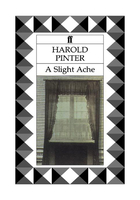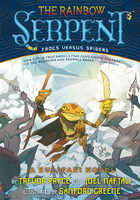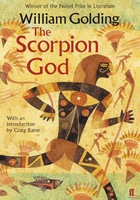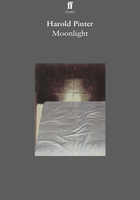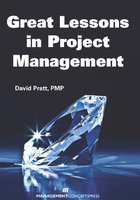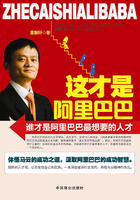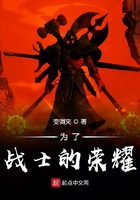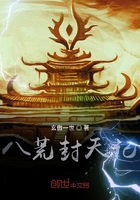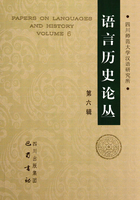Witheringe House. That was the name of the new house. Though it wasn't new, really. It had been Father's when he was a child.
Still, it was new to me.
I had never been there. All I knew of it was the name.
Witheringe House.
I have always paid attention to words and the way they fill my ears. There are words I could hear over and over again, like "seashell." And there are other words, like "custard," that make my stomach flip. Witheringe House. I tried it in my mind and found I couldn't enjoy it. The sound of it was too much like-
"Like a withered limb." Zenobia finished the sentence for me. "Like an apple left in the sun, turned soft and small."
"I wish you wouldn't do that," I told her.
"I can't help it," she said.
It was true, she couldn't. Zenobia didn't read minds, exactly, but sometimes other people's thoughts passed through her, unbidden. "The same as a shiver," she had said when she described it to me.
"Like a shriveled head," she said now, softly.
I turned to look down the length of Platform Seven. "Father's taking a long time with the tickets," I said. "And I can't see him at all, not in this…"
I waved a hand at the fog, cold and gray and velvet, hanging over the platform. "I could see him over the crowd a moment ago, but now…" I stood on my trunk and tried to find Father's black bowler hat bobbing above the heads of the passengers waiting to board. "Now I've lost him."
Zenobia clasped at the grayness with her thin white hands and gathered it close. "I think there is something deliciously bleak about fog, don't you, Elizabeth?"
"No. And the train leaves in seven minutes, and if-"
"I wish I could keep a scrap of fog in my pocket for whenever the weather got oppressively nice."
I went up on tiptoe, but there was still no black hat to be seen.
The train at Platform Eight pulled away, and smoke mixed with the fog. I covered my ears against the heavy, creaking sound the train made leaving the station. When the creaking faded, I heard another noise.
Someone whistling. A light, cascading tune.
It filled me with dread.
"Listen," I hissed, and Zenobia did.
She frowned. "It's the aria from-"
"From The Magic Flute," I finished. "I hope Father's not in earshot."
Zenobia nodded gravely. "Hearing that tune in his present condition-well-it may prove the last straw," she said.
Our train arrived. The waiting passengers became a surging crowd that elbowed and pushed and waved tickets in the air. Still no Father. Maybe he had gone and left me behind, just as Mother had done.
But then I saw the black hat and, underneath it, Father coming along the platform. His eyes slid over me, and he walked straight by. I wasn't surprised. I am small and quiet, the kind of girl it is easy to walk past without seeing.
I sprang down from my trunk, scraped past the woolen coats of the crowd, and caught at his sleeve.
"There you are, Elizabeth!" He turned and looked down at me. "The train's about to leave."
Aboard the train, in our compartment, Zenobia clicked open her silver pocket watch. "Eleven twenty-seven," she said. "Four minutes behind schedule."
I pressed my palm to the window. Outside, there was only fog. I had planned to spend the journey looking through the glass, as the city unraveled into countryside. I had hoped-
"Yes, but it is Tuesday."
"Pardon?"
"You wanted to have your nose pressed up against the window all the way to Witheringe House, but you didn't account for the fact that it's Tuesday morning."
"And?"
"And," she finished, "Tuesday mornings are almost invariably gloomy."
I sighed. It was a shame, because I had hoped-
"Personally," she said, "I find fog more interesting to look at than fields or forests or rivers. They're all so dull-so utterly predictable. But fog! Anything could be hiding under this fog. It's got so much more potential."
I had hoped the sight of fields and forests and rivers might have cheered Father. He sat across from Zenobia and me. A book lay open on his lap, but his eyes weren't following the words across its pages, and his face was blank.
I wanted to ask Father about the new house and how he remembered it from when he was a boy. But I didn't want to intrude on his thoughts. Father hated being interrupted, and it had seemed particularly wise to leave him in peace since the evening Mother had failed to return from the opera.
After Mother left, Father didn't yell. He didn't cry. He just, somehow, stopped. He stopped going to work at the museum. He stopped writing articles about seed dispersal patterns in the dandelion genus, and he stopped dictating letters to the editors of the Journal for Modern Biology. Envelopes addressed to him lay unopened, and the Times lay unread beside his plate at breakfast.
I watched him and tried to decide if he felt angry. Or sad. Or nothing.
Three days after Mother left, I was at her dressing table. I was letting my fingers run very slowly across the pointed teeth of her hair comb. Zenobia came up behind me.
"She's never coming back, you know," she said.
I didn't want Zenobia to be right. But I remembered the night Mother left. She was wearing her emerald evening gown. Its sequins were like scales, and she flickered down the stairs like some kind of tropical fish. When she bent to brush her lips against my cheek, she stopped halfway and looked at me, confused. I think she had already started to forget who I was.
And then, a full twelve days later, there came a pink envelope with a note inside. Mother, as she explained in her flowing hand, had run off with the opera singer who understudied for the role of Tamino. She would follow The Magic Flute as it toured the opera houses of Europe. To Munich, Vienna, Prague, Bratislava. She had no plans to return.
I read the note when Father had finished with it, and I believed every word, except for the two at the end where she signed herself off, "Love always."
A sharp rap came at the door of our compartment.
"Refreshments?" A man in a brocade waistcoat held the tea trolley steady. Father answered his question with a nod. The man set down a silver teapot and two cups on a table that unclipped from the wall. With silver tongs he placed a biscuit on each saucer.
Zenobia looked at the two cups and the two saucers and the two biscuits.
"Excuse me," I began, and the man in the waistcoat leaned in with one ear toward me to show he hadn't heard. I straightened in my seat and made my voice as loud as it would go.
"Excuse me," I said again, "but we need another cup."
Zenobia cleared her throat.
"And another biscuit," I finished.
Father put the ends of his fingers to his temples and closed his eyes. When he opened them, he said, "I hoped Zenobia might stay behind. Must she accompany us all the way to Witheringe Green?"
"I expect so," I told him, "as she is on the train with us now."
The man was looking at the gold buttons on his waistcoat.
"She's far too old for an imaginary friend, of course," Father said to him, "but perhaps you could humor her."
"Certainly, sir."
I saw the ends of the man's moustache twitch, but if he laughed at Zenobia or me, he waited until he had wheeled the trolley away.
"Imaginary friend indeed," muttered Zenobia while I poured her tea.
Zenobia is not imaginary at all. It is true no one except me can see her or hear her, but that doesn't mean I dreamed her up. Besides, as she so often likes to point out, it's unlikely that someone as dull or as timid as I could ever imagine someone like Zenobia.
But if she's not imaginary, she's not quite real either. For a start, Zenobia is pale. Very pale. Almost translucent in direct sunlight. And the irises of her eyes are black as tar. There's a faintness about her that makes it hard to tell where she ends and the rest of the world begins. And when she's upset or irritated, strange things-unnatural things-have a tendency to happen. It's like the thought-reading: she can't exactly help it. Or, at least, she says she can't-
"Urgh!" Father spat his mouthful of tea back into his cup. He used his handkerchief to wipe droplets of tea from his beard.
"I think," he said as he refolded the handkerchief, "there's something amiss with the tea."
"There is?" I looked into my cup. It seemed fine. I tasted it. It was fine.
"Yes, there is," he said. His face was still screwed up in disgust. "Perhaps it has been steeped too long."
I peered over the rim of his cup. It was filled with a thick black liquid. Bubbles formed, then burst across its surface. "Yes," I said, and I looked at Zenobia, who was looking up at the ceiling. "Perhaps that's it."
I finished my tea. Father let his go cold in front of him. Zenobia consulted her watch. "Twelve thirteen," she said. "Over three hours to go."
She pulled a book out of her pocket. It had a cardboard cover and its title read, in smudged type, The World Beyond. Under this, in smaller type, was One Famed and Celebrated Clairvoyant's Guide to the World of the Spirits. Underneath this, but in big letters, was the name of the Famed and Celebrated Clairvoyant herself: Madame Lucent.
Zenobia's latest obsession was clairvoyance.
When we were younger it had been anatomy, and Zenobia's pockets had rattled constantly with bird skulls and mouse bones.
Last summer it had been fortune-telling. Zenobia was forever looking into my teacup or inspecting the lines of my palm, then lengthily listing the misfortunes-shipwrecks and pinching shoes and incurable bouts of hiccups-she saw for me in my future.
And ever since she had tired of fortune-telling, it had been clairvoyance. There was nothing-at least for now-that fascinated Zenobia more than ghosts. And this was unfortunate, because there was nothing I was more afraid of than-
"Well, that's not true," she said.
"Excuse me?"
"You were about to think that there's nothing you're more frightened of than ghosts. The correct nomenclature, by the way, is 'Spirit Presence.' And it's simply not true that there's nothing you're more afraid of. I happen to know you're frightened equally by almost everything."
"I don't think-"
"Seagulls!"
"Yes, but only when they're swooping. Or when they look as if they might swoop."
"Hard-boiled eggs!"
I shuddered. "Too much like eyes."
"Snakes." She was counting on her fingers now. "Music boxes. Gloves without hands in them. Should I continue?"
"I think you've made your point."
Zenobia opened her book, drew out the raven's feather she used for a bookmark, and, holding it between her teeth, began to read.
I can't read other people's thoughts, but I knew Zenobia well enough to know what she was thinking: that in the new house she might finally encounter a Spirit Presence.
I watched Zenobia while she read. She was too absorbed in her book to notice how I shivered.
At the next station, the door to our compartment opened and two girls came in. One tall, one small, and both in school uniform. The small one took the seat by Father, and the tall one, before I could stop her, sat squarely on Zenobia. Almost immediately, she sprang up again. Her face was pale and her teeth chattered. She folded her arms tightly around herself.
"What's the matter this time, Cecilia?" Annoyance flickered over the small girl's face.
"The cold," said Cecilia. "Didn't you feel it?"
"I didn't feel anything."
Cecilia stared at the place where Zenobia sat. "I felt it," she said. "I felt it even in my teeth and in my hair. I've never felt so cold."
"Well, I don't know what you're talking about."
Cecilia turned about the carriage. "There must be a draft," she concluded. And she sat on her case on the floor.
Zenobia smiled and went on reading her book.
"How long to go?" I asked Zenobia when the small girl and the tall girl had left. She snapped open the silver watch. "Fifty-three minutes," she said, "if we're running on time."
She went back to her book. I went back to the fogged window.
The thought that the train would soon stop-that I would have to get off at a strange station, go to a strange house, and start to call it home-was like something sharp stuck in my throat that I couldn't swallow away. Then again, perhaps things might be different in the new house. Maybe Father would talk to me at breakfast and dinner, or leave the door to his study open so I could come and stand by him while he worked, or even invite me to accompany him on his afternoon walks. Maybe he would stop remembering Mother was gone and start remembering I was still there.
When the train pulled away from Witheringe Green, Father, Zenobia, and I were the only figures on the platform. If anyone else had gotten off the train, they had quickly been lost in the thickening fog.

